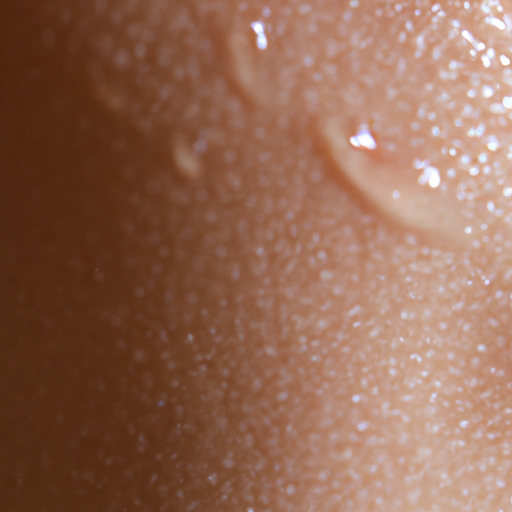As a medical professional, I often encounter patients struggling with oily skin. This common issue can lead to a host of problems, including acne, blackheads, and an overall dull complexion. However, the good news is that it’s possible to manage oily skin naturally and restore your skin’s natural radiance. Here are some essential tips for healing oily skin naturally.
Firstly, understanding the cause of oily skin is crucial. Oily skin is the result of overactive sebaceous glands that produce excess sebum, a natural skin oil. While sebum is necessary for keeping the skin healthy and moisturized, too much of it can lead to oily skin and clogged pores.
1. Maintain a Balanced Diet: Your diet plays a significant role in your skin’s health. Consuming foods high in sugars, fats, and oils can stimulate sebum production. Instead, opt for a balanced diet rich in fruits, vegetables, lean proteins, and whole grains. These foods are packed with vitamins and antioxidants that can help regulate oil production and keep your skin healthy.
2. Hydrate: While it might seem counterintuitive, drinking plenty of water is essential for managing oily skin. Dehydration can signal your sebaceous glands to produce more oil to compensate. Aim for at least eight glasses of water a day to keep your body and skin adequately hydrated.
3. Use Natural Skin Care Products: Many commercial skincare products contain harsh chemicals that can strip your skin of its natural oils, causing your sebaceous glands to overcompensate by producing more oil. Opt for natural skincare products made with ingredients like tea tree oil, witch hazel, and aloe vera. These natural ingredients can help control oil production without drying out your skin.
4. Regular Exfoliation: Exfoliating your skin 2-3 times a week can help remove excess oil and dead skin cells that can clog pores. However, be careful not to over-exfoliate as it can irritate your skin and trigger more oil production. Use a gentle, natural exfoliant and always moisturize afterward to maintain your skin’s natural moisture barrier.
5. Don’t Skip Moisturizer: Many people with oily skin believe they should avoid moisturizers. However, moisturizing is a crucial step in any skincare routine. Without it, your skin can become dehydrated and produce more oil to compensate. Look for a lightweight, oil-free moisturizer that won’t clog your pores.
6. Exercise Regularly: Regular exercise helps increase blood circulation, which can help nourish skin cells and keep them vital. It also helps in reducing stress, which can trigger oil production. Remember to cleanse your face after exercising to remove any sweat and oil that may have accumulated during your workout.
7. Get Enough Sleep: Lack of sleep can cause hormonal imbalances that may lead to increased oil production. Aim for 7-9 hours of sleep per night to allow your body to rest and regenerate.
8. Limit Sun Exposure: While a bit of sun is beneficial for vitamin D production, too much can damage your skin and stimulate oil production. Always wear a broad-spectrum sunscreen when you’re outside, even on cloudy days.
In conclusion, managing oily skin doesn’t have to involve harsh treatments or expensive products. By making some simple lifestyle changes and adopting a natural skincare routine, you can help control excess oil production and reveal your skin’s natural radiance. Remember, everyone’s skin is different, so it may take some trial and error to find what works best for you. If you’re struggling with severe oily skin or acne, don’t hesitate to seek professional medical advice.



